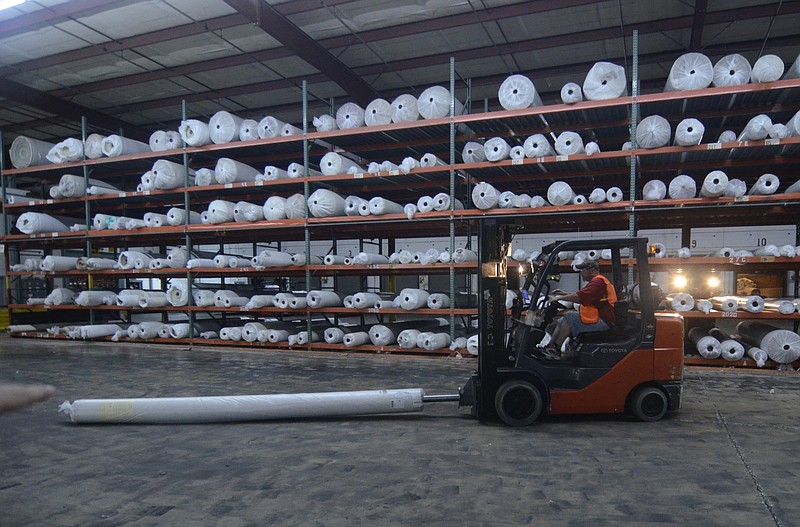The Dixie Group, Inc., more than doubled its losses last year due to a 6 percent drop in carpet sales, but company CEO Dan Frierson said today he expects better performance in 2017.
The Chattanooga-based carpet maker said today that the drop in carpet sales severely impacted its bottom line, widening its operating losses in 2016 to $5.2 million, or 33 cents per share, compared with a loss of $2.28 million, or 15 cents per share in 2015.
For 2016, Dixie Group had net sales in 2016 of nearly $397.5 million, a 5.9 percent decrease from the 2015 sales total. Fiscal 2016 was a 53-week period while fiscal 2015 had 52 weeks in the period. On a comparable 52-week basis, net sales for 2016 were down 7.2 percent from 2015.
For the fourth quarter, Dixie losses from continuing operations was 17 cents per share, compared with a loss of 3 cents per share a year earlier. Dixie's carpet sales for 2016 were down 6 percent from 2015, on a comparable 52-week basis, while the industry was down in the low single digits, Frierson said.
In the fourth quarter, Dixie carpet sales were down 7.7 percent while the industry sales overall were flat.
"Despite this difficult year from a profit perspective, we have made several significant changes to improve our results in the future," Frierson said in a statement today. "We completed our restructuring earlier in the year, setting the stage for a more productive manufacturing environment."
Frierson said workforce training has helped improve quality and reduce claims.
"We refinanced our debt, pushing out the maturity until 2021," he added. "We have reduced our inventory to levels in line with our sales and reflecting the improvements in reduced waste and shorter throughput times."
Frierson said higher prices adopted in late 2016 and the introduction of new products in the company's Fabrica, Atlas and Masland brands should also improve results this year.
"In the coming years, the housing market will be in the middle of two massive demographic waves, millennials and baby boomers, with both groups driving demand for at least the next decade," Frierson said. "This trend should provide steady growth in the floorcovering market."
The company's shares closed Friday at $3.55. A year ago, they were trading at $4.38.
